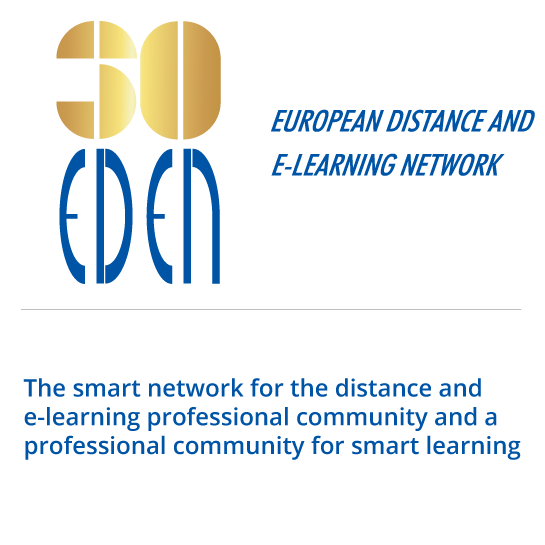There was once a Portuguese football player who when asked about his prediction for a game he famously replied: Predictions? Only after the match. The year now ending has proven how prudent this funny remark is. Few could have expected the ‘onrushing train of 2020’, to use Jeffrey Klugger’s expression on Time magazine. It seems the world has turned upside down and nothing is certain anymore. This blog post is a good example of that. Having started to write it well before Christmas, only now a few hours before New Year’s Eve am I able to finally complete it after a series of failed attempts. Perseverance and resilience are definitely the best words to describe our life experiences in 2020.
For many the last year has represented a time of endless difficulties, of heartfelt loss, of understandable sorrow and pain. How can we forget the 1,8 million victims of Covid-19? But, this eventful year has been a turning point as well. There are quite good reasons for 2020 to be remembered with pride and hope. The development of several new vaccines and treatments in record time was an astonishing achievement, reinforcing our trust in science and allowing us to look into the future with more optimism and confidence. A similar, although less celebrated development has taken place in the educational field.
Distance and online learning confirmed their critical importance in 2020. As soon as COVID-19 was declared a global pandemic by the World Health Organization, most schools and campuses were shut down because of strict social distancing measures. UNESCO estimates that 1,6 billion students from 138 countries worldwide were affected by this emergency at the height of the crisis. In this unprecedented context though the continuation of formal education activities became a top priority in the global political agenda. The solution found for this enormous challenge was the massive implementation of remote teaching and learning.
Unfortunately, due to the global scale and speed of this forced transition, educational institutions weren’t given much time to consider existing research and best practice. Moreover, the inequalities in access to technology which still divide our societies coupled with low levels of digital competence presented a huge obstacle for the dissemination of internet-based education. These limitations conditioned the quality of teaching and learning practices carried out. During this crisis, teachers struggled to manage interaction with students and showed unfamiliarity with digital assessment. Most teachers resorted to replicate face-to-face teaching practices using web conferencing and synchronous communication platforms, leading to digital fatigue and work overload. The educational advantages of asynchronous online learning seemed to have been lost in these emergency remote teaching practices, as Tony Bates rightly notes.
If education systems weren’t prepared for this emergency, neither was the EdTech experts community. In spite of the solid body of research and best practices accumulated throughout the years, such an unexpected scenario had never been considered. For instance, there was no robust theoretical and practical knowledge on how to organize distance learning for non-adult populations, particularly young children. This massive experience has raised a number of new issues and problems which need to be addressed by research.
Despite the evident limitations of the remote education solutions applied, the pandemic has made it possible to accelerate and greatly expand an ongoing movement of digital transformation of educational institutions. Everyone now realizes this is not just about introducing ICT in the classroom. It is about augmenting our reality through a digital dimension which inevitably reflects on the enrichment of the way we teach and learn.
Research and innovation play a key role in this process. The impact of the pandemic crisis is also inspiring a new generation of researchers on open, distance and online learning. They are contributing to widen the field of research and bringing new interesting perspectives. This phenomenon was perfectly exemplified in the very successful EDEN 11th Research workshop 2020 held online from Lisbon last October. As my dear friend Senior Fellow Alan Tait stated in his concluding remarks, the workshop was a triumph of resilience for the EDEN community. Indeed it was. The event showed how researchers are exploring a wide array of topics, both traditional and exciting new ones across the state of play from emerging technology to pedagogical innovation and ethics. Another inspiring conclusion was that quality, integrity and equity of the online learning process is a key concern for all. This is of the outpost importance as my good friend Maxim-Jean Louis, President of Contact North and also an EDEN Fellow, reminded us: “there has never been a time when evidence-based decisions and the need for quality data, understanding and research based insights has been more important.”
At the end of such an exceptional year, one fundamental question seems to dominate our minds: when will we return to normal? After such a traumatic moment there is some “nostalgia” for the lost presence. It’s understandable. Many teachers will feel comfortable in returning to their traditional practices as soon as possible. However, the impact of the coronavirus pandemic has forever changed the way we live, work and learn. There is no turning back to the openness, flexibility, differentiation, intensity and scalability of online teaching and learning. The new normality will surely imply the spread of hybrid learning environments. But, as they go digital, schools and universities must transform themselves and change their cultures, structures and practices. If so, redesigned as fully digital ecosystems, I believe these institutions will be major hubs in the knowledge networks of the new smart cities. If not, most probably they’ll perish.
In order to conduct this complex process institutions may rely on the support of scientific and professional associations. The quality and quantity of activities undertaken in 2020 by them was truly remarkable. EDEN in particular has organized an unparallel number of actions which have had a wide impact all over the world. This year has also proven how openness and networking is critical for the advancement of knowledge in our field.
Nevertheless, similarly to what happened with medical science, the acceleration of educational research and innovation will depend on the emergency support it will receive from Governments and ONGs. The success of the coordinated response to vaccination has demonstrated how decisive the European Commission role can be when dealing with large scale processes. I hope the EC takes the lead once again and speeds up the process of digital transformation and reimagination of the European educational systems. A massive public investment in capacity building is required. In fact, according to Holon IQ, 52% of the last decade’s EdTech venture capital global funding came from China and 33% from the US, while Europe only accounted for about 5%. Well, who knows if maybe Mrs. Ursula von der Leyden will read this post and feels inspired to act a bit further on this…
The clock is now approaching midnight and I must finish the blog post. What a year this was! In 2020 we have definitely proven how important open, distance and online learning is. Hopefully in 2021 we will be able to continue reimagining education as a digitally enhanced process.
Happy holidays to all and let’s toast together to an excellent and transformational New Year!
António M. Teixeira
EDEN Senior Fellow



